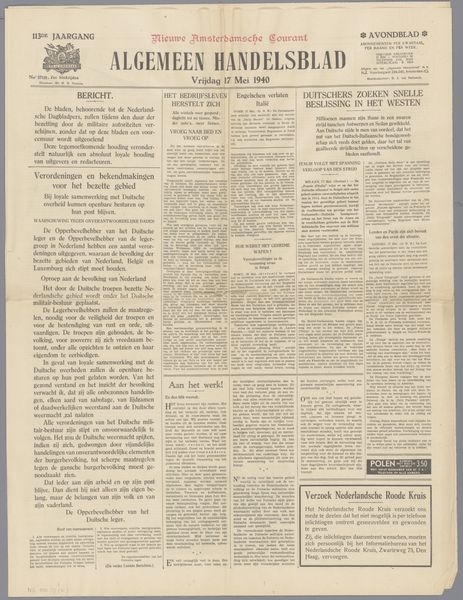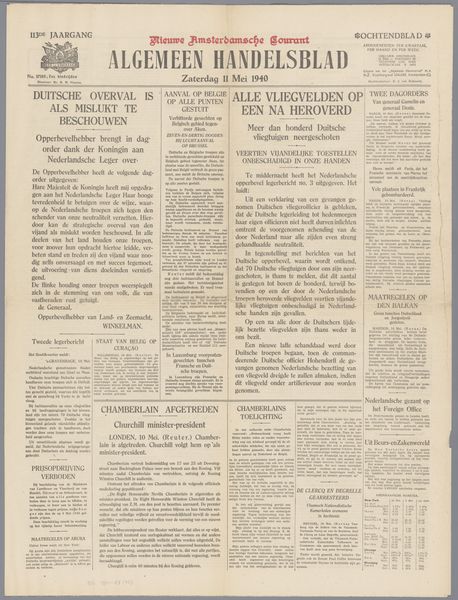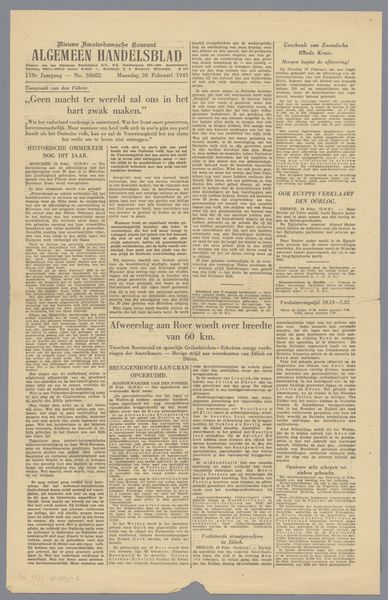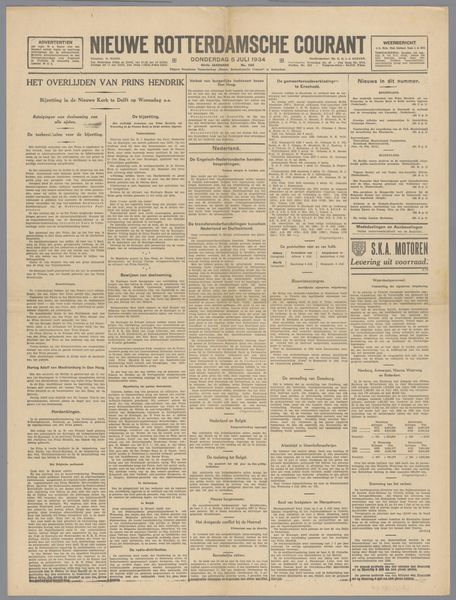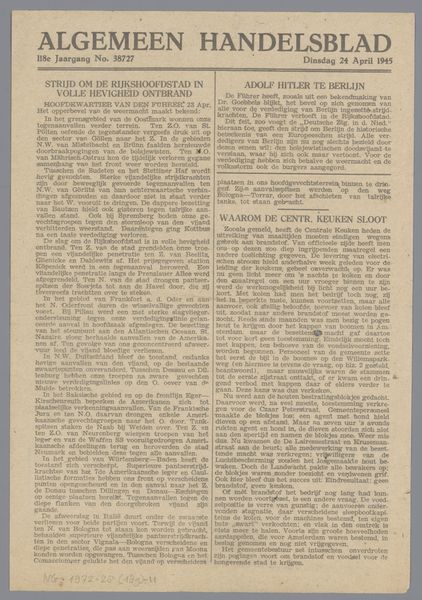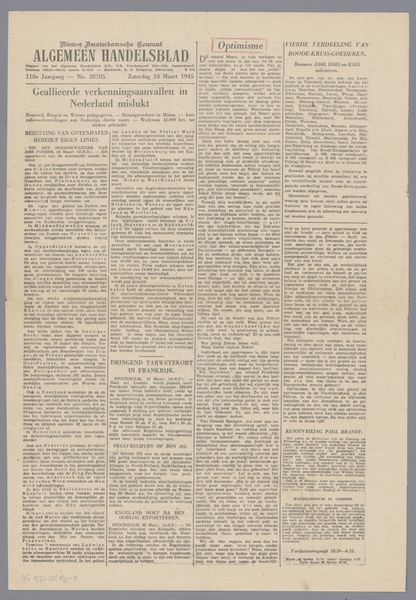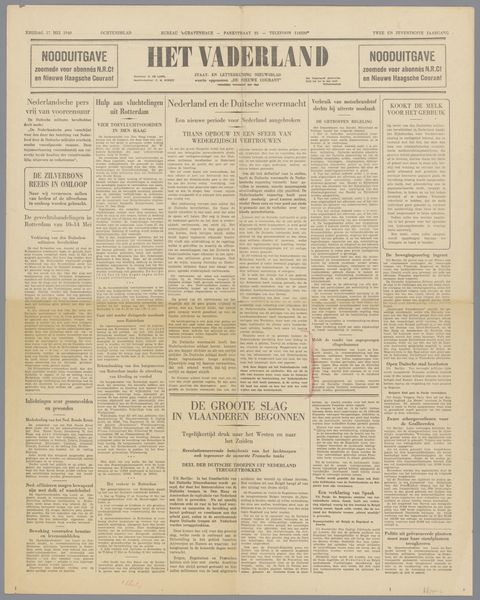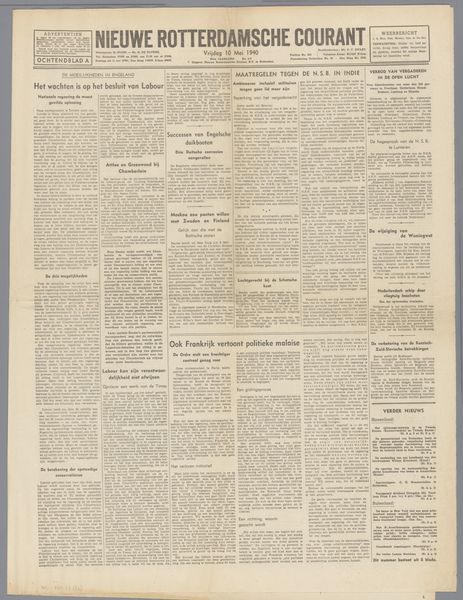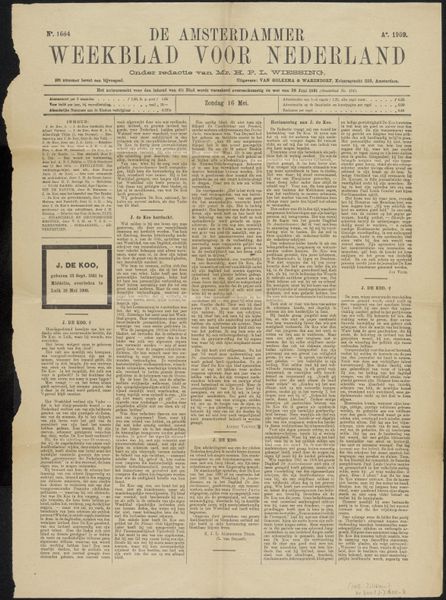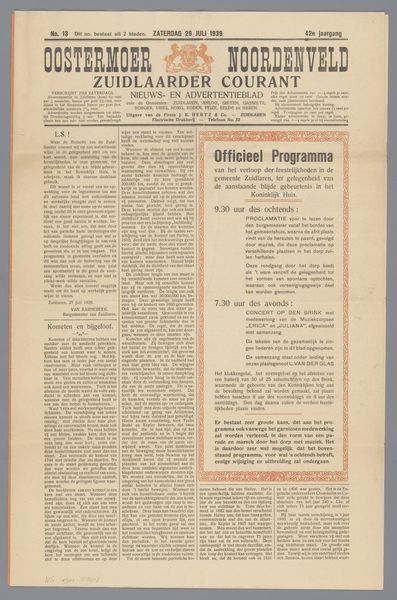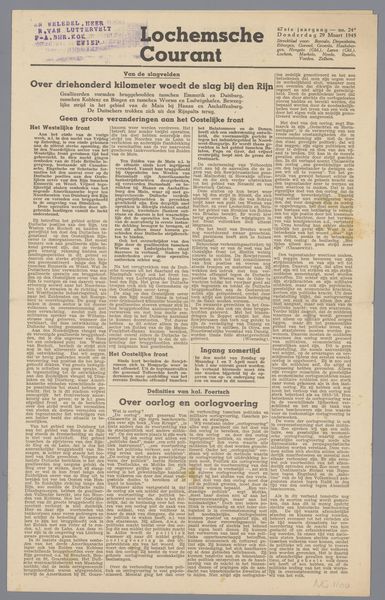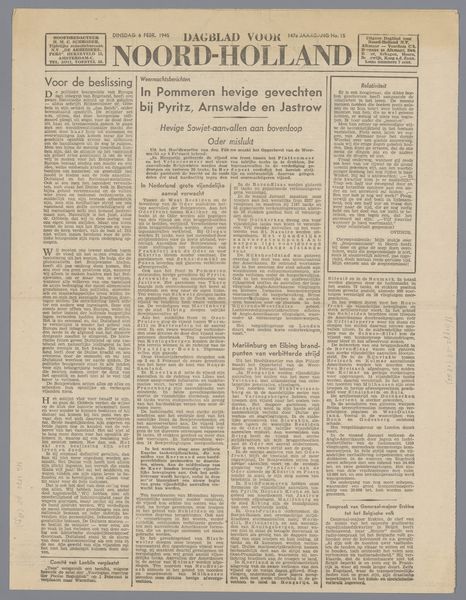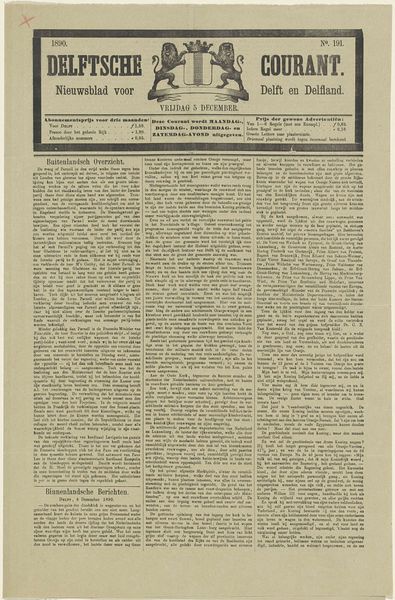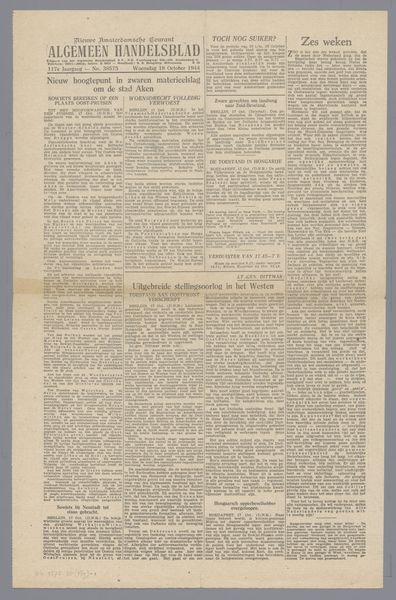
print, textile, paper, photography
#
script typeface
#
old-fashioned
#
aged paper
#
page thumbnail
# print
#
textile
#
paper
#
photography
#
paragraph style
#
newspaper layout
#
thick font
#
handwritten font
#
word imagery
#
historical font
Dimensions: height 60 cm, width 45 cm
Copyright: Rijks Museum: Open Domain
Curator: Here we have an artifact titled "Algemeen Handelsblad," a newspaper likely dating from the period of 1940 to 1945. It is a photograph of a printed page on aged paper and possibly textile. Editor: It's so striking. This feels like history practically shouting from the page. All that tightly packed text—it gives an impression of urgency. Is this a Dutch paper? Curator: Indeed. The “Algemeen Handelsblad” translates to something like "General Trade Journal," and the language used is indeed Dutch. We can glean insights into Dutch society of that era by examining the articles, layout, and even the advertising presented within its pages. This offers insight into both its economic and socio-political landscape during World War II. Editor: Right. Looking at the layout, you immediately see it's a different world from our news. Dense text, no breathing room—so unlike the curated information streams we're used to. And all that old-style font giving off some old-fashioned, historical feels! Curator: Yes, the typographical choices themselves speak to a particular moment. A "script typeface," "handwritten font" and the "thick font" used contribute to the overall impression of the "historical font." Analyzing this kind of word imagery offers us valuable insight, shedding light on historical events and their social and political implications. Editor: Makes me wonder what it felt like to hold this in your hands back then, to absorb the world through this lens. The paper itself feels almost like a physical embodiment of history, that has "aged paper" for effect, all "old-fashioned" and filled with paragraphs, or "paragraph style" as they might say. Curator: It serves as a primary document that whispers stories of resilience, collaboration, and the human spirit amid immense pressures. Examining the "newspaper layout" offers us glimpses into the narrative constructed for the public. It's important to investigate the "public role of art," to understand how media and communications affect the society's perception of realities. Editor: So, looking at this then—I don’t just see ink on paper, but a snapshot of humanity grappling with the biggest challenges. It makes you grateful and really contemplate all that these papers have been through. Curator: Absolutely. These printed ephemera can teach us volumes about ourselves, our past, and perhaps even illuminate our future.
Comments
No comments
Be the first to comment and join the conversation on the ultimate creative platform.
